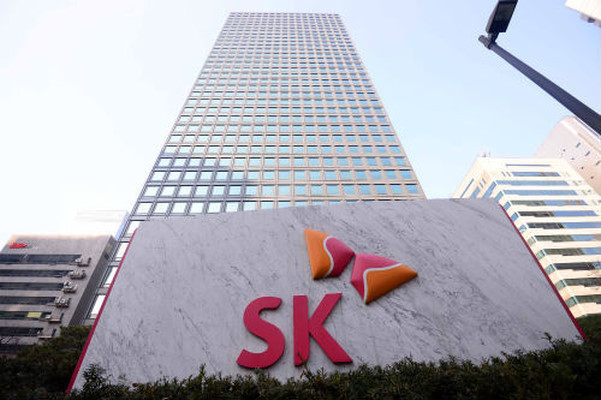Industrials
Where are SK’s W80tr investments headed?
[THE INVESTOR] South Korean telecom and energy giant SK Group has rolled out its plan to inject 80 trillion won over the next three years, investing heavily in the semiconductor and renewable energy business, offering a glimpse into its long-term growth strategy.
SK Group Chairman Chey Tae-won unveiled the list of plans in a meeting between Finance Minister Kim Dong-yeon on March 14, vowing to hire 28,000 more during the course of investment.
 |
Arranging its investment targets into five sectors, SK will invest 49 trillion won (US$46 billion) in chips and material development, and 13 trillion won in renewable energy, according to officials at the Finance Ministry. The remaining 20 percent of the investment plan will go into ICT, future mobility and health care, they added. SK Group did not release the plan separately.
On semiconductor, SK’s chipmaking arm hynix is likely to make massive investments in technology and production expansion to secure a greater presence in the already thriving market. The massive budget does not include its investment in Toshiba, and will be solely spent on chip production, and developing semiconductor materials like silicon wafers said Kim Ju-hyun, project leader at PR team of SK Supex, the group’s decision-making council.
The global semiconductor market is expected to grow at a faster-than-expected pace this year thanks to rising demand for DRAM and other chips. As of the first quarter of 2017, SK hynix was the world’s second-largest DRAM maker and ranked fourth for NAND production.
In telecoms, the conglomerate will develop infrastructure for 5G services and build an ecosystem for ICT-related business. Eco-friendly and renewable energy will be developed along with smart power management systems, it added.
SK has been pouring money into its energy, chip, and telecoms businesses for years. But its plans for future mobility and new drug development are drawing attention.
The group allocated 5 trillion won via its telecom arm SK Telecom for autonomous vehicles, connected car technology and batteries for electric cars. The telecom giant has been participating in graphic mapping technology in partnership with Nvidia, a leader in visual computing technology since last year, while the group’s energy arm has jumped into the market for electric vehicle batteries.
As a latecomer, SK Innovation has already spent 840.2 billion won on building a production plant for automobile batteries in Hungary, and has announced an additional investment plan of 200 billion won to expand its plant in Seosan, South Chungcheong Province.
In health care, SK is set to invest 2 trillion won in the development of synthetic drugs, vaccines and health care services provided using 5G networks. SK Biopharmaceutical has already been making investments in new drug development. Chey’s eldest daughter, Yun-jeong is part of the global marketing team there, seeking the company’s entry into overseas markets, according to officials.
By Cho Chung-un/The Korea Herald (christory@heraldcorp.com)








